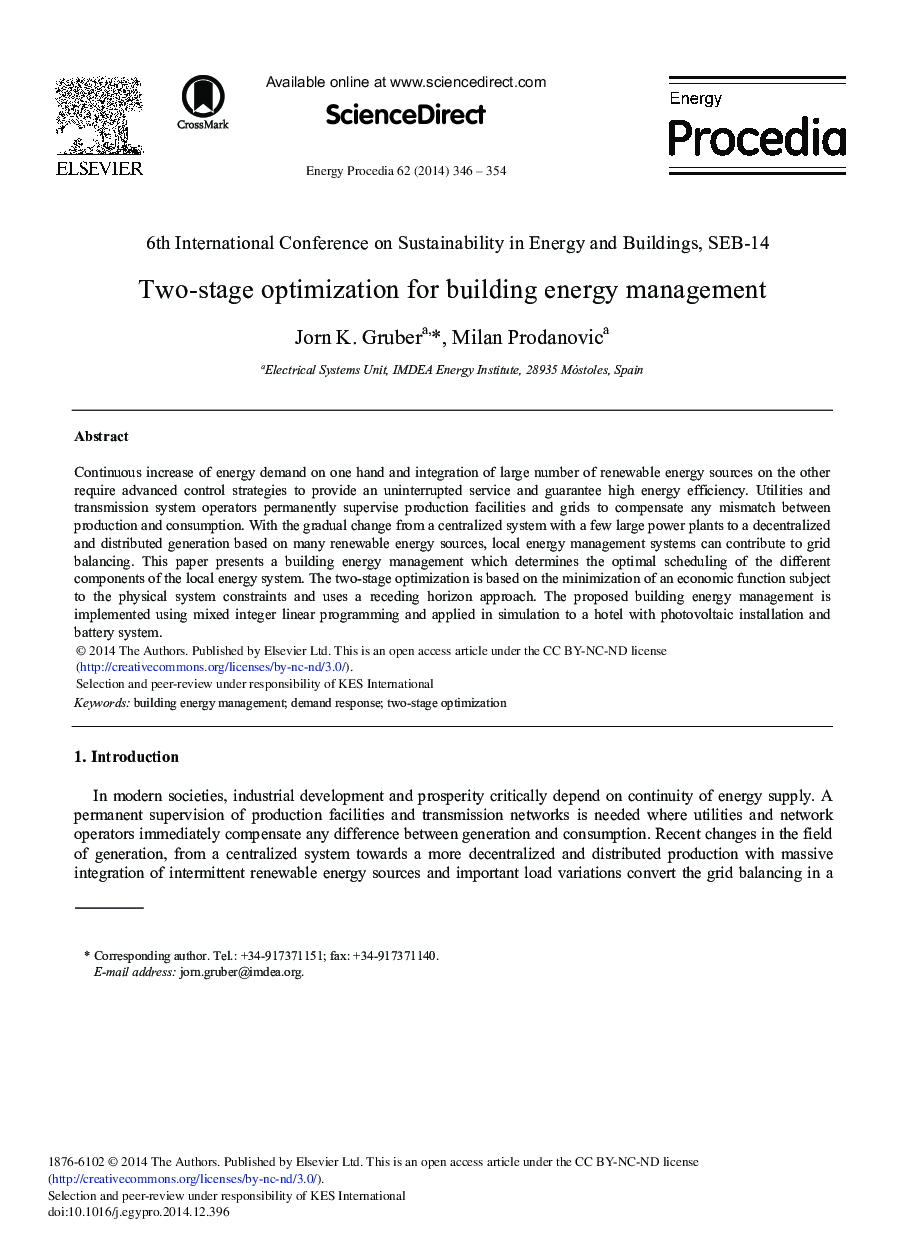| Article ID | Journal | Published Year | Pages | File Type |
|---|---|---|---|---|
| 1510121 | Energy Procedia | 2014 | 9 Pages |
Continuous increase of energy demand on one hand and integration of large number of renewable energy sources on the other require advanced control strategies to provide an uninterrupted service and guarantee high energy efficiency. Utilities and transmission system operators permanently supervise production facilities and grids to compensate any mismatch between production and consumption. With the gradual change from a centralized system with a few large power plants to a decentralized and distributed generation based on many renewable energy sources, local energy management systems can contribute to grid balancing. This paper presents a building energy management which determines the optimal scheduling of the different components of the local energy system. The two-stage optimization is based on the minimization of an economic function subject to the physical system constraints and uses a receding horizon approach. The proposed building energy management is implemented using mixed integer linear programming and applied in simulation to a hotel with photovoltaic installation and battery system.
